Article 1133 of the newly enacted Civil Code of the People’s Republic of China has attracted many people’s attention because of its fourth paragraph which was added at the last moment before its enactment, which provides that a natural person may create a testamentary trust. It is expected that many people may take advantage of this paragraph when planning their family wealth transmission. In order to prepare for the implementation of this paragraph, Shanghai No. 2 Intermediate People’s Court held a seminar focusing on the Theories and Practices on Testamentary Trusts in the afternoon of July 9, 2020, and Professor Lingyun GAO from Fudan University Law School was invited as one of the two speakers.
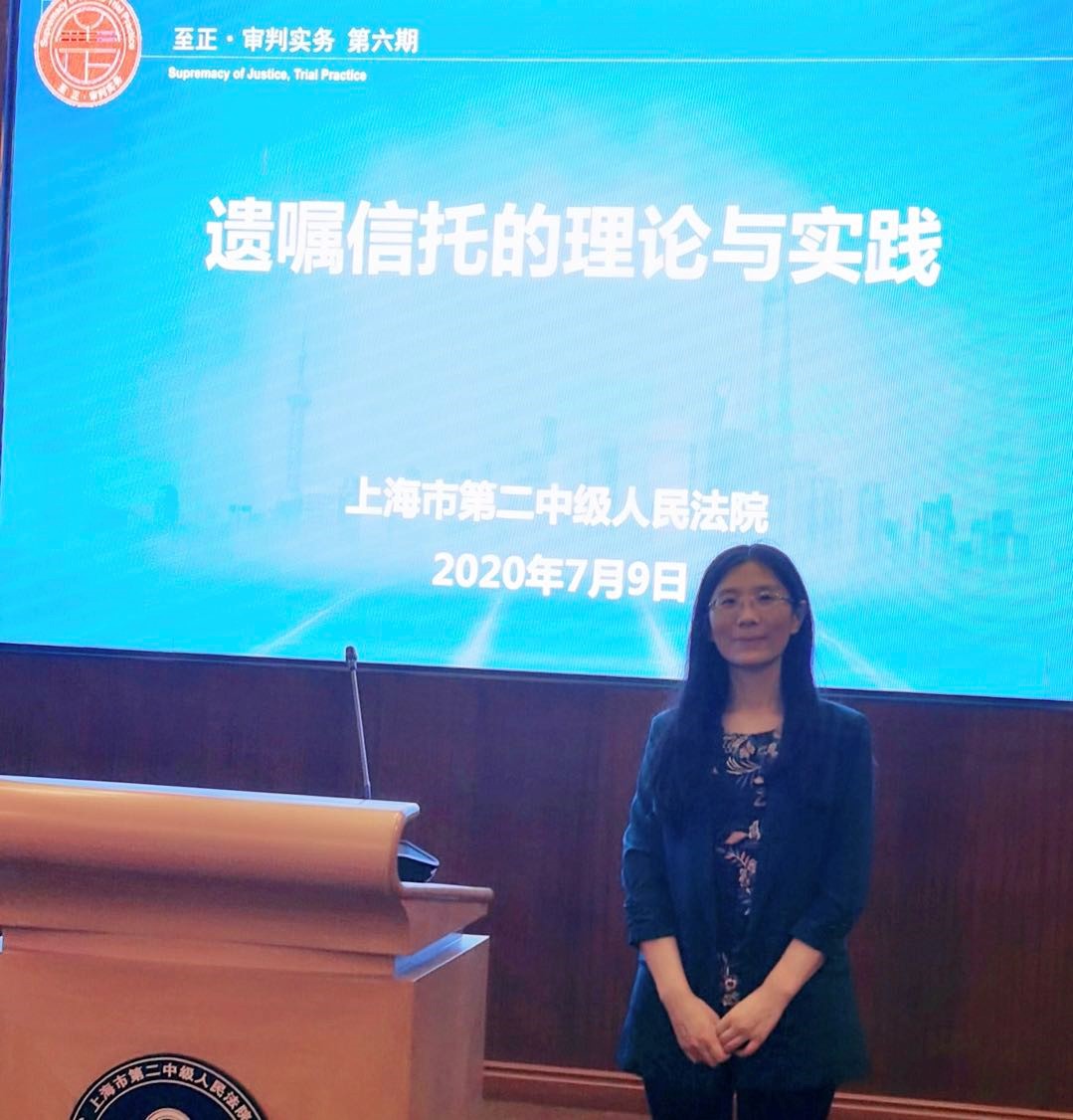
Also invited was Ms. Jan Cai, the General Manager of the Family Wealth Management & Consultant Department of Shanghai International Trust Co., Ltd. The participants of the seminar included the judges and administrators of the court, among whom including Senior Judge Nan JIANG, member of the judicial committee of the court, Chief Judge Huizhong GU and Deputy Chief Judge Lei JI of the Juvenile and Family Division, and Judge Boqing HUANG, the Deputy Director of the Research Department of the court. Judge Zhuoya CHEN from Shanghai High People’s Court also attended the seminar. Judge Lei JI hosted the event.
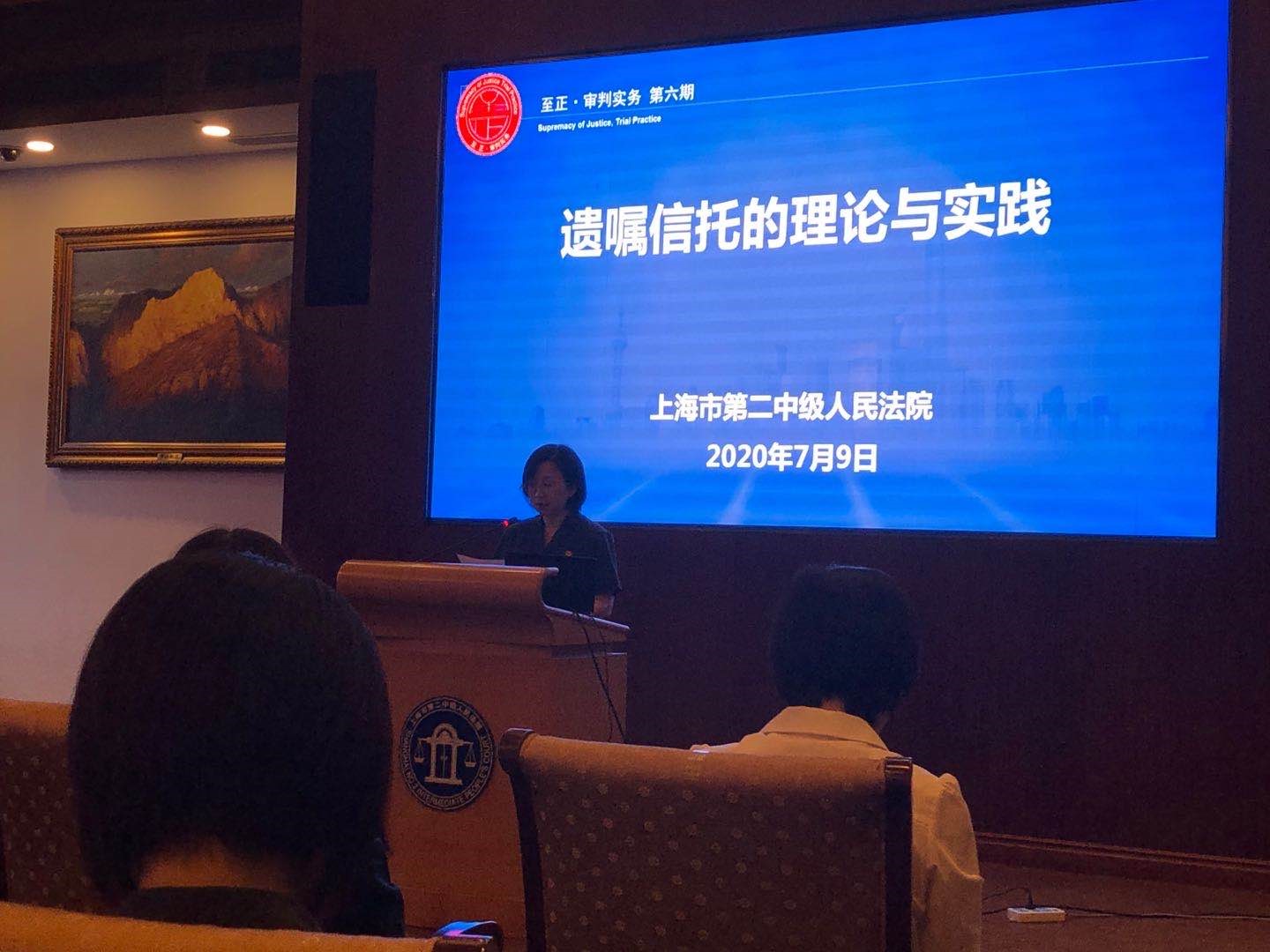
Senior Judge Nan JIANG opened the seminar on behalf of the court. She summarized the court’s trial practices in family and succession law areas, and emphasized the importance of Article 1133 of the Civil Code.
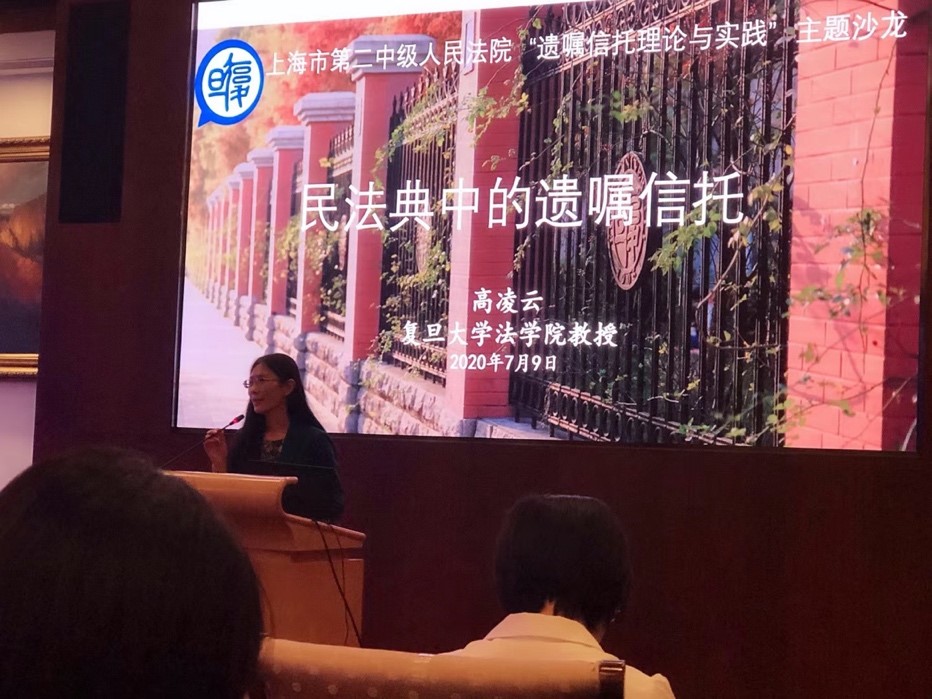
Professor Lingyun GAO then delivered her talk on Testamentary Trusts under the Civil Code. After briefly introducing the new article in the Civil Code, Prof. GAO analyzed the relevant articles in the Trust Law, and discussed about the concept, construction, formation, categorization, and registration of trust. She pointed out a few important but easily ignored issues in the family trust area, such as the division of trust principal and trust income, the conflict of interests of different classes of beneficiaries and the trustee’s duty of impartiality, the unclear provision regarding when a testamentary trust is deemed as created, and who is supposed to transfer the estate to the testamentary trust. More importantly, whether a family trust should be registered, and how and where to register it were to be further clarified.
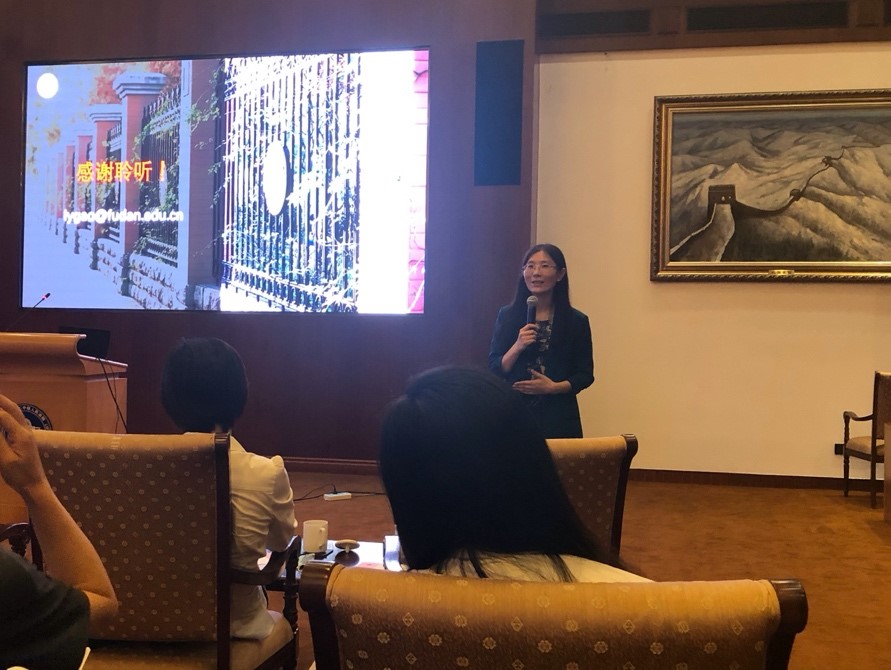
The second speaker Ms. Cai’s talk focused on her practical experiences in managing family trusts. She firstly reviewed the history and development of the family trusts in China, and then introduced several issues they encountered when helping their clients create family trusts. She has also compared the recent trusts on insurance policies with testamentary trusts, and offered insight on a testamentary trust case decided by the court from a practitioner’s perspective.
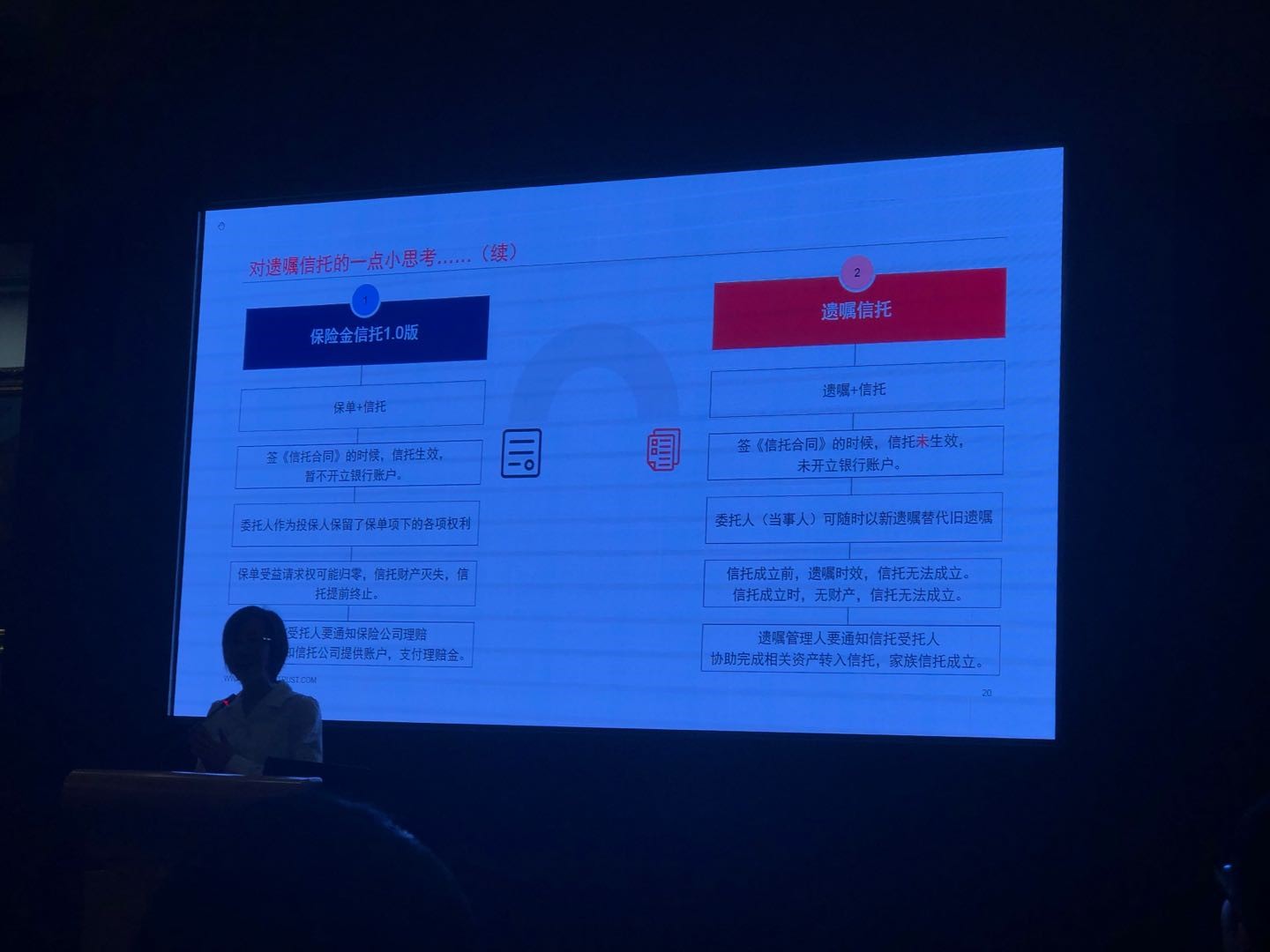
In the end, Chief Judge Huizhong GU gave a closing remark, calling researchers, practitioners, and jurists to develop coordinative forum to discuss and make suggestions on application of law in the family trust area, and ultimately to promote the perfection of the Chinese trust law system.
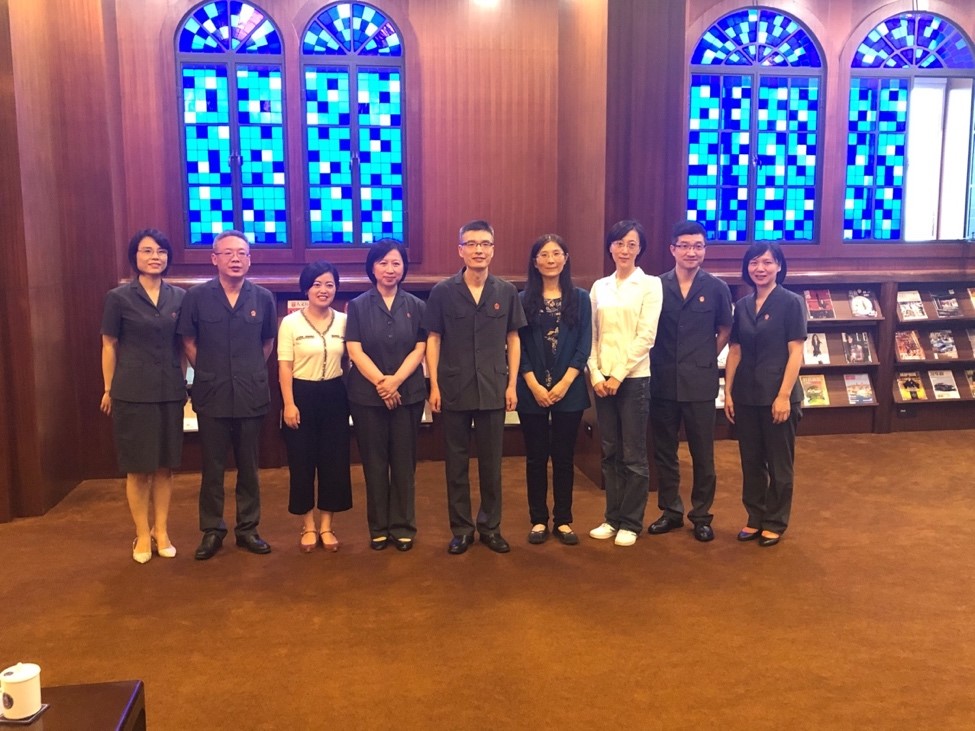
[Group Picture of the Speakers and Some of the Participants of the Seminar]
(Reporter: Guanyun QI)






